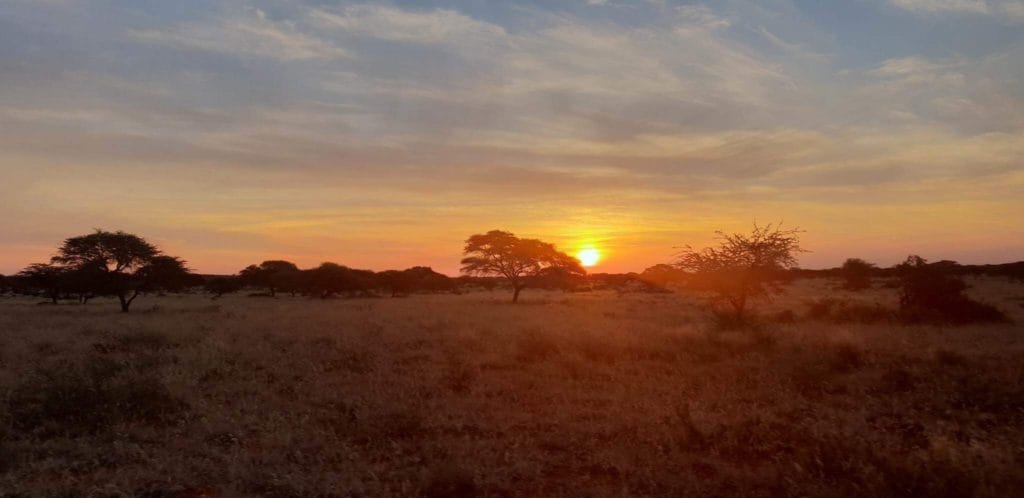No matter your viewpoint on conservation, one thing is evident, poaching is a huge problem.
Statistics prove hunters are the number one conservationists.
When hunters purchase licenses when booking a hunt within the US or abroad, that money contributes to funding programs that help sustain the welfare and protection of wildlife and plant life. Below, is just one example according to USFWS of how hunters help in conservation efforts.
African Elephant Conservation Fund 2017
Total Number of Grants Awarded: 13
Total Funds Distributed Through Grants: $3,085,085
Total Partner Contributions Leveraged by Grants: $7,587,875
Total Number of Countries that Received Program Support: 9
Did you know? Elephants can be hunted in eight African countries namely, Cameroon, Tanzania, Zambia, Mozambique, Zimbabwe, Botswana, Namibia, and South Africa. Botswana has the highest concentration of elephants. It is now, once again, open for hunting after being closed for a number of years.

Hunting Africa
It takes funding to keep up the lands in Africa. It takes lots of help, work, and resources to keep Africa and its wildlife abundant. When I think of Africa, I don’t think of livestock. I think of the majestic lion, rhino, giraffe, zebra, kudu, impala, gemsbok, buffalo, and more. I don’t want to travel to Africa to experience cows grazing and farm animals. I want to see plains game animals.
To help keep that from happening, when we hunt in Africa, the meat harvested is donated to local villages. It is shared around the dinner table and divided among the men and women at the lodge, workers, guides, and their families. It's shared. When we hunt Africa, we help provide jobs for guides, trackers, lodge owners, and caregivers. We help their children go to school, and we help animal value which in turn keeps them protected.
When we hunt in Africa. It’s celebrated and appreciated more than most could ever realize. You ask, why are poachers pressured to hunt illegally? For decades, Africa has been grappling with a poaching crisis that has resulted in precipitous declines in iconic large mammals such as elephants.
Hunting Quotes: The 18 Best of All Time
The poaching crisis of the late 2000s – early 2010s hit Ruaha-Rungwa’s elephants hard. While there were an estimated 32,000 elephants in 2009, the census in 2015 estimated 15,000 elephants, a more than 50% decline due to poaching. The 2018 census showed that the population had stabilized. Ruaha-Rungwa has one of the largest remaining elephant populations in East Africa and is, therefore, a key landscape for elephant conservation (cited Ruaha-Rungwa’s Southern Tanzania Elephant Program; Sue Stolberger)
Some 26,000 elephants, three-quarters of the elephant population in the Ruaha-Rungwa region in Tanzania as of 2009, were killed over a five-year period, for instance. Much of the slaughter has been attributed to organized crime syndicates that are becoming increasingly militarized and employing sophisticated weaponry. Apart from organized poaching gangs, individual rural villagers are also involved and poverty is thought to be the main driver. But few studies have explored whether this is actually the case.
A study done by Conservation and Society probed poachers on that very question. Four in five villagers said they engaged in poaching for food or income. Almost all (96%) claimed that they would stop if they received income through other means to meet their needs.
A 2001 paper published in Science points to how legalizing trophy hunting in Zimbabwe has “doubled the area of the country under wildlife management relative to the 13% in state protected areas,” since the program at the time included private lands. “As a result, the area of suitable land available to elephants and other wildlife has increased, reversing the problem of habitat loss and helping to maintain a sustained population increase in Zimbabwe’s already large elephant population.” And considering how an elephant trophy fee could be up to $45,000+ (according to hunting africa.com)The potential for revenue generated by trophy import permits could be a massive boom for both conservation projects and the local communities.
The illegal exploitation of wildlife resources has been a challenge for many decades. Studies have shown that illegal hunting is usually associated with loss of livelihood that comes with disturbances such as political unrest and economic collapse.
In Zimbabwe, for instance, during the 2000–2008 political crisis and economic collapse, many communities were left suffering from high unemployment, loss of income, food shortages, and other essential daily supplies.
By the end of the first quarter of 2020, the COVID-19 pandemic brought international travel to an abrupt halt affecting tourism revenue received by many countries.
As you can imagine – no tourism, no hunters, and no revenue. Everything and everyone suffers. When I made my second trip to Africa to hunt, it had been 17 months since hunters were allowed back. As you can imagine, not only did I witness an abundance of wildlife, but I also witnessed the most genuine, grateful, thankful, smiling, and welcoming hugs from everyone. From the people working in the airport to the staff cooking our meals. Finally, after months without work, without hunters, without lodges being occupied, no large group dinners being celebrated from fresh kills, it was the most beautiful thing I have ever been a part of.
To this day, I have never been so blessed and more proud to be a hunter who loves Africa. I pray I continue to be able to go to an amazing country whose vast wildlife and ecosystem continue to thrive because of hunters.
